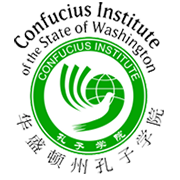Creating a Chinese Language Program Resources
The key resource for the program is the guide published by Asia Society:
“Creating a Chinese Language Program in Your School: An Introductory Guide”
Outline of the Workshop and Links to Resources
1. Understanding the Context: Why is everyone interested in learning Chinese these days?
- Expanding Chinese Language Capacity in the State of Washington (PPT) – presentation by Dr. Shuhan Wang at International Education Leadership Summit in Seattle, January 30, 2006
- 2006 Summit Report (Word) or PDF
- Asia Society Resources
- Expanding Chinese Language Capacity in the United States
- Creating a Chinese Language Program in Your School: An Introductory Guide (pages 6-7)
2. Understanding the Language: What do we need to know about Chinese?
Creating a Chinese Language Program in Your School: An Introductory Guide (pages 10-12)
- Basic Facts about Learning Chinese (PPT by Adam Ross)
- Which variety? (Cantonese or Mandarin)
- Why is learning Chinese challenging for native English speakers?
- What about the writing system(s)?
- Which is used on the AP exam? (Answer: Both)
College Board > AP Chinese Language and Culture
https://www.collegeboard.com/student/testing/ap/sub_chineselang.html?chineselang
3. Planning the Program: Where do we begin? An Introductory Guide (pages 16-19)
- Who needs to be involved? (stakeholders) | Stakeholder Worksheet (PDF)
- What are the program goals? | Worksheet Goals (PDF)
- What levels of proficiency can learners attain?
4. Staffing the Program: Where are the teachers? An Introductory Guide (pages 22-24)
- Staffing the Program (PPT) (large 12 Mb) — based on outline in the Asia Society Guide
- Teacher Certification
5. Funding the Program: What does it cost? An Introductory Guide (pages 24-25)
6. Choosing a Program Model: What are the choices? An Introductory Guide (pages 28-32)
- Early Language Learning Models:
https://www.cal.org/earlylang/progdev/chart.html - Model Early Language Learning Programs
https://www.cal.org/resources/digest/0211gilzow.html
7. Planning for Instruction: What do we teach? An Introductory Guide (pages 34-36)
- OSPI > Standards for World Languages
- STARTALK Curriculum Planner
8. Assessing Student Proficiency: How well can they learn? An Introductory Guide (pages 37-38)
- College Board Chinese AP
- International Baccalaureate
- Center for Applied Linguistics Oral Proficiency Assessments > ELLOPA, SOPA, COPE
- Standards-Based Measurement of Proficiency > STAMP
Chinese Proficiency Test HSK - LinguaFolia https://www.ncssfl.org/LinguaFolio/index.php?linguafolio_index
9. Sustaining Quality: How can we create an enduring program? An Introductory Guide (pages 42-44)
- Alignment across grades and schools
- Professional development for teachers
- Partnering with Heritage Language Communities
- Monitoring effectiveness over time
Interspersed throughout: what’s currently happening in Washington State to expand Chinese language opportunities?
Note: This workshop was originally developed under a State Innovations grant from Longview Foundation to the Washington State Coalition for International Education (www.internationaledwa.org). Many of the resources continue to be housed on that website. Acknowledgements to Chunman Gissing and Adam Ross from the Chinese Language Core Team for their work in developing and presenting this workshop from 2006 to 2010.



